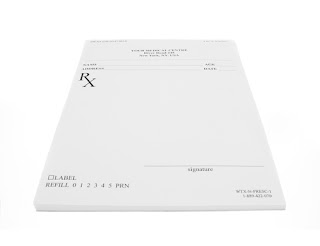Doctors are life savers. If a person is struggling with a health sickness, then they are likely to consult a physician. We all expect people working in the field of medicine to diagnose and offer us evidence-based treatment to alleviate symptoms. Naturally, the excellent work by doctors goes far beyond the body, those with specialized training can help individuals struggling with diseases of the mind. With treatment, recovery is possible.
In the addiction medicine field, recovery centers specializing in helping people struggling with mental health conditions rely heavily on physicians. Medical doctors, psychologists, and psychiatrists are invaluable to the effort of giving people with mental illness – from depression to chemical dependency – a fighting chance.
At Hope By The Sea, people in the earliest stages of recovery benefit from both medication and a host of therapies. Medication mitigates the severity of withdrawal symptoms; pharmacological aids also help patients who meet the criteria for co-occurring mental disorders. More than half of individuals living with addiction contend with conditions like depression, anxiety, bipolar disorder, and PTSD. Without regular sessions with psychiatrists or psychologists, the potential for achieving lasting recovery for such people would be significantly diminished.
It should not take much effort to realize how vital medical professionals are to capital “R” recovery. While people in recovery laud the role of physicians regularly, it can be simple to forget that doctors contend with many of the same problems they aim to treat. This is especially true regarding depression and just like much of the general public, many physicians are reticent to seek help. And again, like the average person, the outcomes of avoiding treatment routinely results in self-medication and in many cases—suicidal ideation. A new survey from Medscape sheds some light on the prevalence of depression and suicide.
Why Are Doctors Depressed and Thinking About Suicide?
Physicians have a lot on their plate; in many cases, working long hours in places that are understaffed. From the time a person decides to pursue a career in medicine, more study and schooling is required than just about any profession. By the time an individual tacks on the M.D. to their name, it is fair to say they are tired. A more apt description is “burned out.” As a result, some are at risk of experiencing psychological strain.
The new survey from Medscape shows that nearly 44 percent of doctors in America are burned out, Reuters reports. The findings come from 15,000 physicians, in 29 different specialties. More concerning, the responses show that 15 percent are depressed and having suicidal ideations. Medscape points out that one doctor per day ends their life. The suicide rate among doctors is, in fact, higher than in any other field.
It is tempting to think of physicians as having the world at their fingertips, respect and a healthy savings account for instance. For many, the perks of working in a highly respected field do not outweigh the stress of working too much and not being able to provide the care patients deserve due to myriad constraints. The survey shows that depression and burn-out are leading more doctors to early retirement. Other key findings include:
- 23 percent of men and 21 percent of women turn to alcohol to cope.
- 20 percent are “feeling like just a cog in a wheel.”
- 64 percent don’t plan to seek help for depression or burnout, and they haven’t in the past.
“There is a passionate argument surrounding the data and discourse about who’s to blame for this situation,” Dr. Carter Lebares, Director of the Center for Mindfulness in Surgery at the University of California, San Francisco, tells Reuters Health. “Quotes from respondents in the Medscape survey capture this very poignantly: anger over a broken system, loss of time with patients, being asked to sacrifice dwindling personal time to ‘fix ourselves,’ and demoralization that the only way out is to quit or severely curtail our work.”
Co-Occurring Disorder Treatment
At Hope By The Sea, we have extensive experience treating people who work in high-stress professions and struggle with mental illness. Please contact us today to learn more about our evidence-based addiction and co-occurring disorder treatment center, and to take the first steps toward finding the miracle of recovery.


